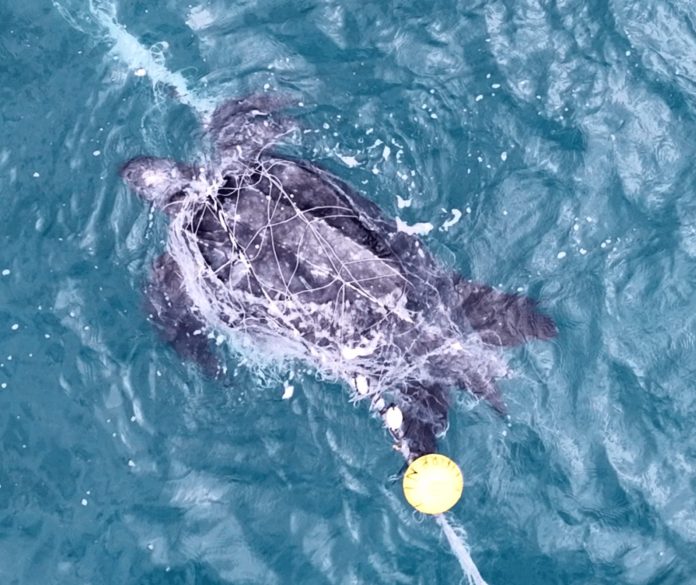It was a traumatic day for not just one but two leatherback sea turtles that became entangled in shark nets in Manly and Dee Why on Sunday, 17 March.
The first giant leatherback was spotted in the early morning off Manly Beach.
An on-duty NSW National Parks and Wildlife Service ranger who was trained as part of the a large whale disentanglement team was able to save the turtle with the help of Manly Surf Club volunteers and Council lifeguards and the Department of Primary Industries (who is responsible for the nets.)
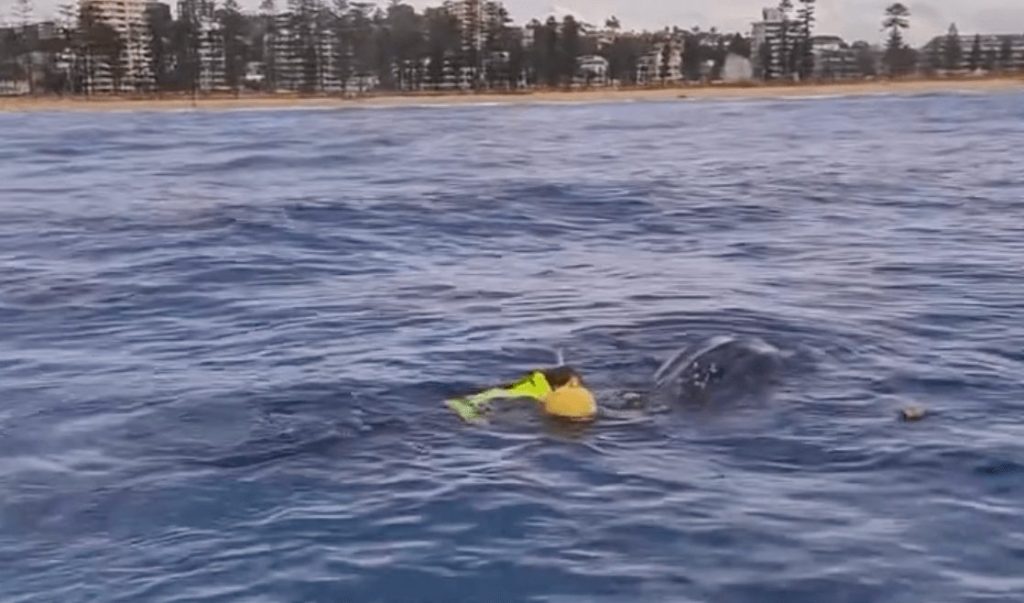
Astoundingly – another of the endangered turtles, a different one, also became stuck in a shark net in Dee Why a few hours later.
In a few hours after it was reported trapped it was released by Northern Beaches Lifeguards and ORRCA, an organisation for the rescue and research of cetaceans )whales, dolphins, seals etc) in Australia.
Miraculously, none of the rare leatherbacks was seriously injured, a NSW National Parks Wildlife and Service spokesperson told the Manly Observer.
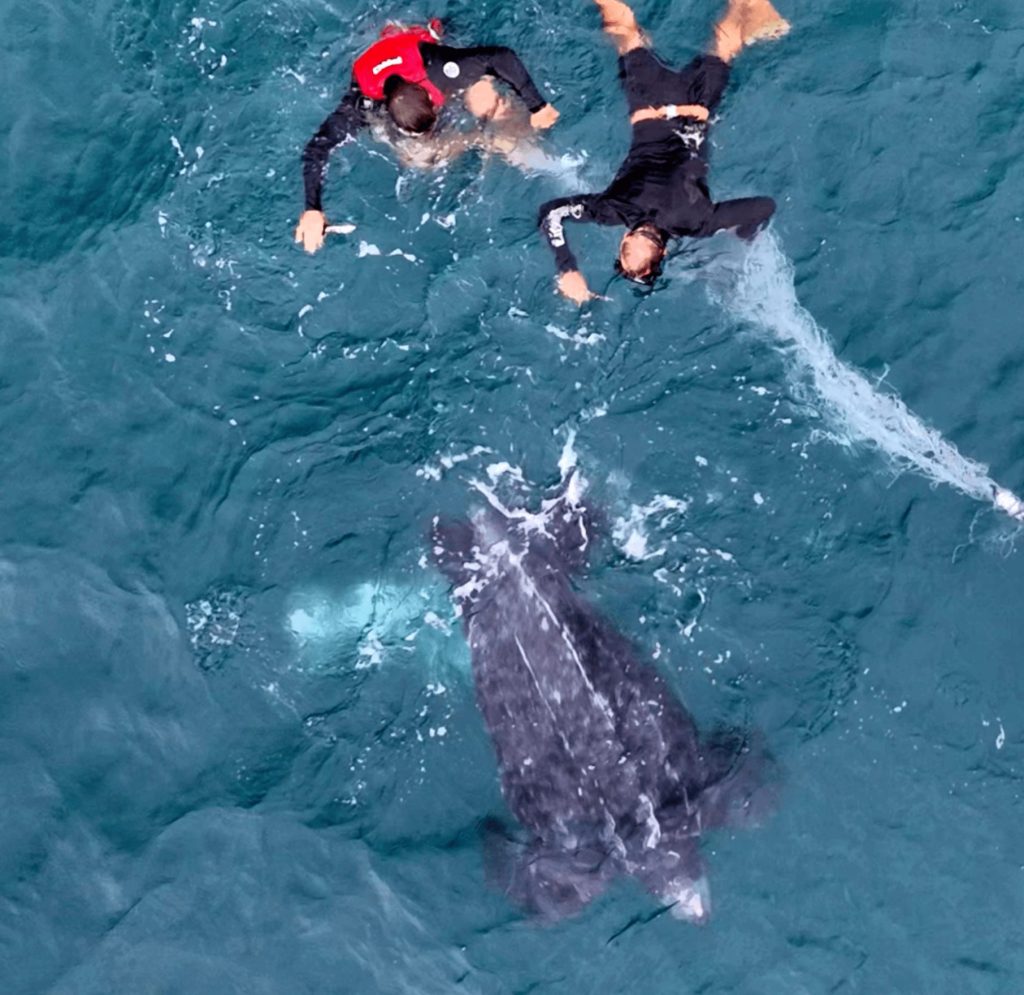
“After being disentangled the turtle [From Manly] swam off strongly.
“Both turtles were strong and healthy, with only minor superficial wounds from the entanglements,” they said.
The endangered leatherback turtle released at Manly was estimated to be around 1.5m long; footage from Dee Why showed the turtle appeared to have a curved carapace length of more than 2m.
Leatherbacks are the world’s largest turtles and can grow up to 2.5m, it is rare to see them on Australia’s east coast.
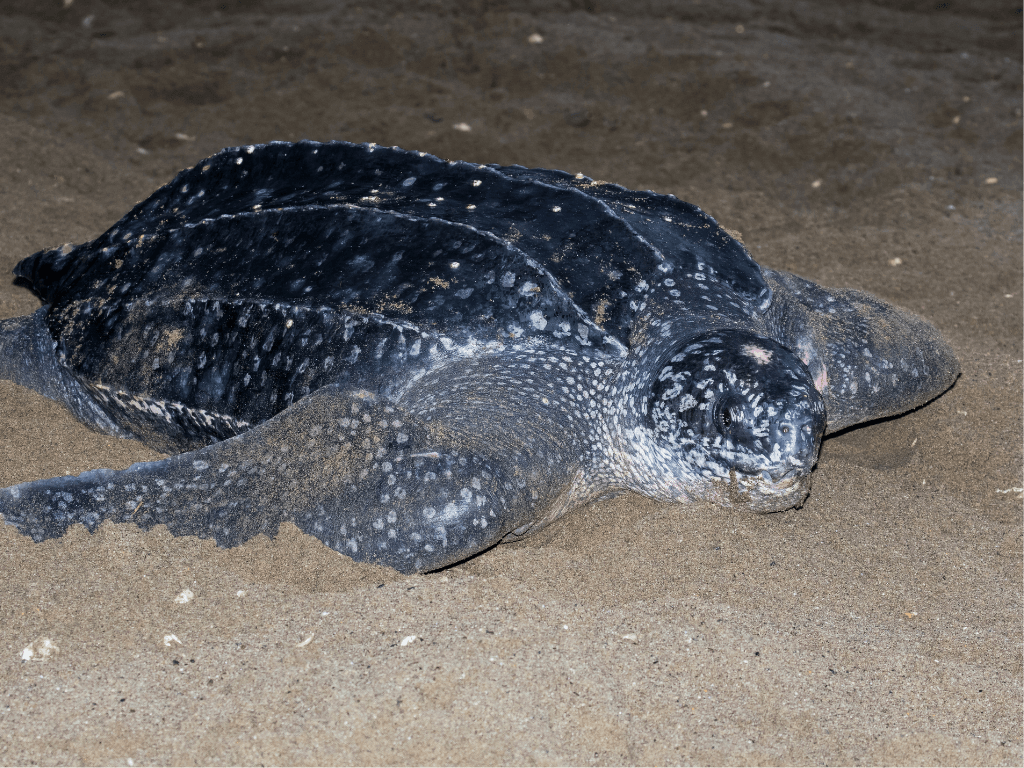
Northern Beaches Council on duty lifeguards David Hooper and Tiaan Cronje, were able to get to the turtle quickly via jet ski.
Mr Hooper said they had to work quickly as they could see the nets cutting into its fins and neck and the turtle risked drowning without urgent assistance.
“When you see such an incredible animal so distressed – it pulls on your heart strings,” Mr Hooper said. “As soon as we got our there it was apparent it was going to require the two of us so we moored the jetski, put on the fins, mask and snorkel that all our jetskis are equipped with, and positioned ourselves on each side of the animal.
“We began to slowly cut the netting – being very mindful of the safety of both the turtle and ourselves as well.
“The turtle showed no signs of aggression – it could feel us loosening the nets and each time we got through a section it struggled again to free itself.
“We wanted to be sure it didn’t go without us having removed every part of the netting and end up in a worse situation. We also needed to make sure it was outside the net so it didn’t just swim back into it again.
“We could tell the poor thing was exhausted and after 20mins or more, we were also tiring.
“We freed the neck and fins first and then eventually were able to remove the rest but the turtle remained too heavy to get off the net by itself.”
In the end they both got behind the turtle and were able to give one large push to finally free it into the open ocean.
“It was amazing, exhilarating,” Mr Hooper said.
“To have been able to save this animal which we were told could be up to 100 years old was really the best feeling.”
“To have been able to save this animal which we were told could be up to 100 years old was really the best feeling.”
Tiaan Cronje was also involved in a dramatic human rescue just over a month ago, saving the life of a young woman washed off rocks by a 10m swell near Freshwater rock pool.
What’s with the shark nets?
Shark nets are rolled out along our beaches between September and April and are designed to deter sharks from establishing territories, thereby reducing the odds of a shark encounter.
According to the 2022/23 DPI annual Shark Meshing Program performance report, a total of 228 marine animals were caught in shark nets in NSW in the last financial year.
That number comprised 24 target sharks and 204 non-target animals, such as sting rays, dolphins, seals, tuna and yes, turtles.

Just 37 per cent of those animals were released alive.
From North Narrabeen to Manly a total of eight non-target animals were entangled in the nets, including two common dolphins and two loggerhead turtles.
The north side, spanning from Warriewood to Palm Beach had 26 non-target animals including three different species of turtles and a bottlenose dolphin.
The report did not specify the exact locations of where the animals were found dead, but the net did not entangle any target animals on the Northern Beaches.
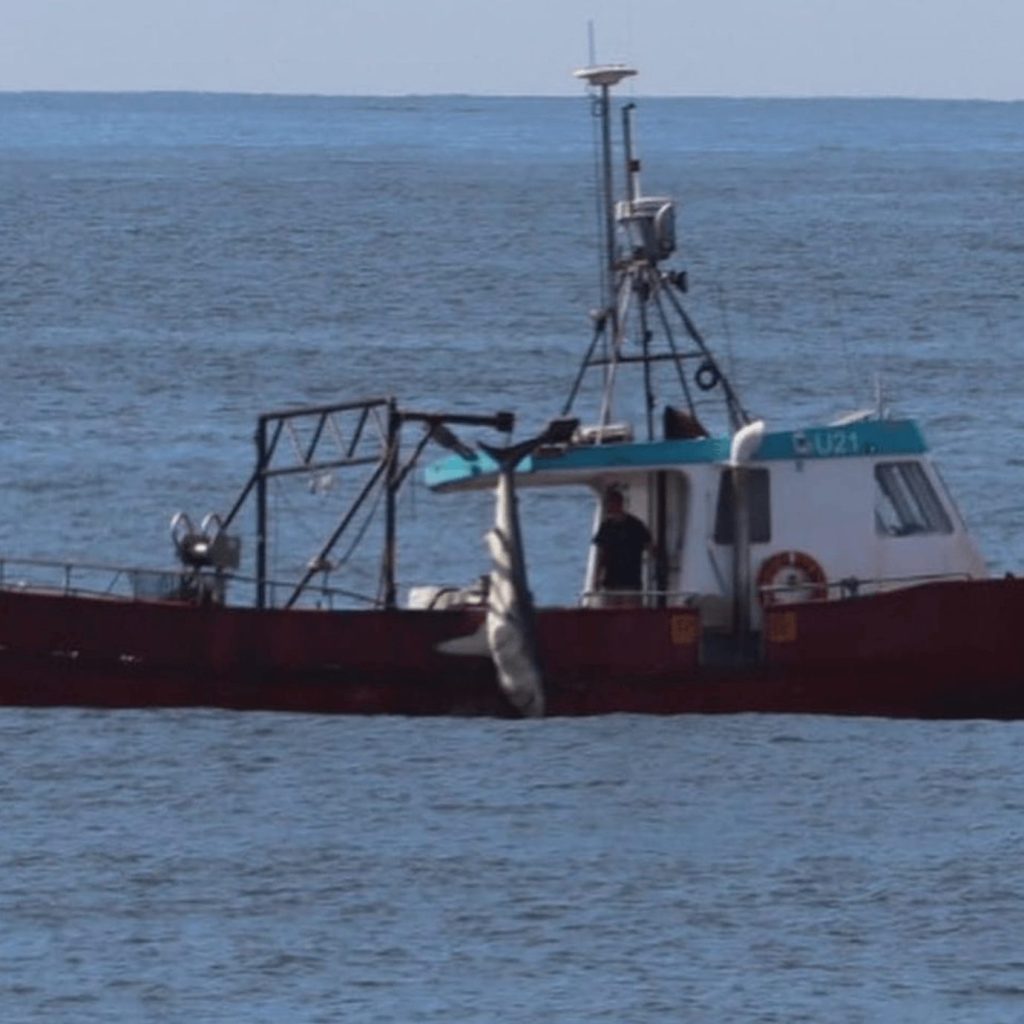
The report also mentioned that in 2022/23 there were just five reported shark interactions in NSW waters, one involving a serious injury and two minor injuries between a swimmer and a surfer.
One minor injury occurred with an unidentified whaler shark in North Avoca and one with a Wobbegong at South Rosedale Beach, Batemans Bay.
The serious injury happened after an interaction with a White Shark in Korffs Islet.
None of these interactions was reported to have occurred within the SMP region of the NSW coastline during the eight-month netting season.
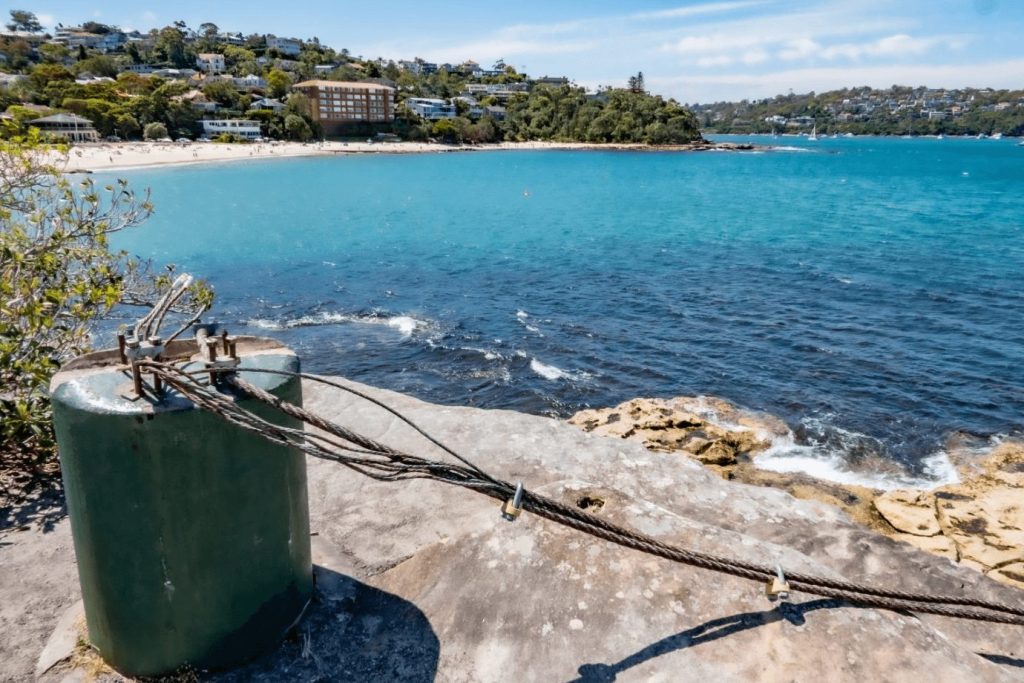
Although it is distressing to see a marine animal caught in a net, NPWS has advised the public it is dangerous to interact with the animal.
“Disentangling marine wildlife is a highly specialised role and is only undertaken where the risks to people involved can managed effectively.
“If you see turtles, dolphins or other marine animals in distress, never attempt a rescue yourself as it can be extremely dangerous… Please call NPWS or the ORRCA Rescue Hotline.”
NPWS on 1300 072 757 (13000 PARKS)
ORRCA Rescue Hotline on 02 9415 3333
Issues with shark nets to DPI on 1800 043 536


